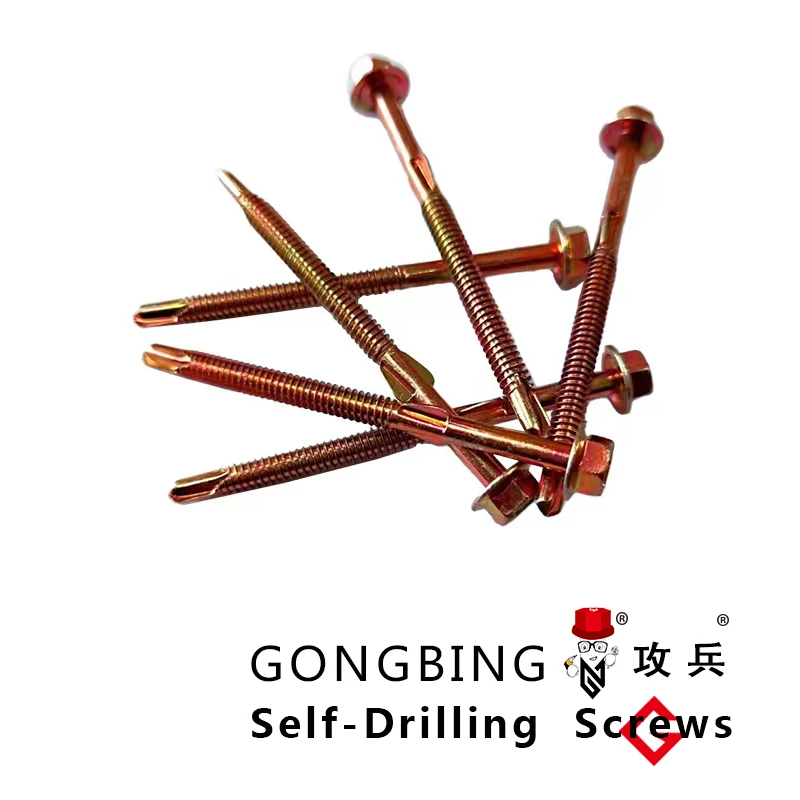Chemical Anchor Bolt Specifications for Reliable Construction and Structural Integrity
Chemical Anchor Bolts Specification An Overview
Chemical anchor bolts, often referred to as adhesive anchor bolts, are specialized fixing devices used in various construction applications to secure structural elements to substrates like concrete, masonry, and brick. They utilize a two-component adhesive system that bonds the bolt to the base material, providing a strong and reliable connection. This article explores the specifications, features, and applications of chemical anchor bolts.
Understanding Chemical Anchoring Systems
There are two main components to a chemical anchor system the adhesive and the metal anchor itself. The adhesive can be composed of various materials, including epoxy, polyester, or vinylester, which are mixed together to create a robust bonding agent. The metal anchor, typically made of steel, is inserted into a drilled hole filled with the adhesive, creating a bond as the adhesive cures.
One of the key advantages of chemical anchor bolts is their ability to perform well in environments where traditional mechanical anchors may fail. They are particularly effective in applications that involve high loads, dynamic forces, or harsh environmental conditions.
Specifications of Chemical Anchor Bolts
When considering chemical anchor bolts for a project, several specifications should be evaluated
1. Load Capacity Chemical anchors have specified load capacities that must align with the project requirements. The load rating is often determined by conducting pull-out tests in representative substrates. Factors such as anchor diameter, embedment depth, and adhesive type will influence load capacity.
2. Environmental Resistance Different chemical adhesives offer varying levels of resistance to chemicals, moisture, UV radiation, and temperature fluctuations. The selection of adhesive should take into account the specific environmental conditions of the application site, such as exposure to chlorides in coastal areas or variations in temperature.
chemical anchor bolts specification

3. Curing Time The curing period for the adhesive plays a significant role in project timelines. Fast-curing adhesives are available for applications that require quick turnaround, while slower-curing systems may offer superior performance characteristics.
4. Installation Requirements Proper installation is critical for the efficacy of chemical anchors. Specifications should outline the required drilling method, hole cleaning processes, and adhesive injection procedures. Adhering to manufacturer guidelines will ensure optimal bond strength.
5. Mechanical Properties of the Bolt The diameter, thread type, and tensile strength of the anchor bolt must meet the requirements of the application. Generally, bolts are fabricated from carbon steel or stainless steel, and their mechanical properties should conform to relevant standards like ASTM A325 or A490 for structural bolts.
6. Certification Standards Chemical anchor systems may require compliance with industry standards and certifications, such as those set by the International Building Code (IBC) or European Technical Assessment (ETA). These certifications help ensure that products meet safety and performance criteria.
Applications of Chemical Anchor Bolts
Chemical anchor bolts are highly versatile and can be utilized in numerous applications, including but not limited to
- Structural Connections Used to secure beams, columns, and other structural components to concrete or masonry. - Heavy Equipment Mounting Essential for anchoring machinery and equipment in industrial settings, where stability and safety are paramount. - Bridge and Highway Construction Ideal for securing safety barriers, road signs, and bridge components where high loads and dynamic forces are present. - Renovation Projects Suitable for retrofitting existing structures, providing a reliable anchoring solution without compromising the integrity of the original material.
Conclusion
In summary, chemical anchor bolts offer a reliable fastening solution with numerous advantages over traditional mechanical anchors. Their specifications encompass load capacity, environmental resistance, curing time, installation requirements, mechanical properties, and compliance with standards. By understanding these specifications and choosing the right product for each unique application, engineers and construction professionals can ensure the safety and longevity of their projects. As construction techniques evolve, the prevalence of chemical anchor bolts in various applications is expected to increase, driven by advances in materials science and engineering technology.
-
Weatherproof Plastic Expansion Anchors for OutdoorNewsJun.06,2025
-
Sustainability in the Supply Chain: Eco-Friendly TEK Screws ProductionNewsJun.06,2025
-
Load-Bearing Capacity of External Insulation FixingsNewsJun.06,2025
-
Double Head Bolts: Enhancing Efficiency in Industrial MachineryNewsJun.06,2025
-
Corrosion Resistance in Chipboard Screws: Coatings for Wholesale DurabilityNewsJun.06,2025
-
Butterfly Toggle Bolts : Enhancing Structural ResilienceNewsJun.06,2025
